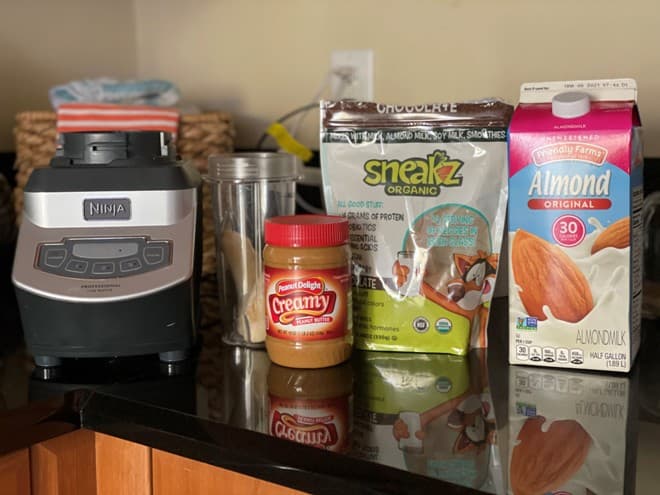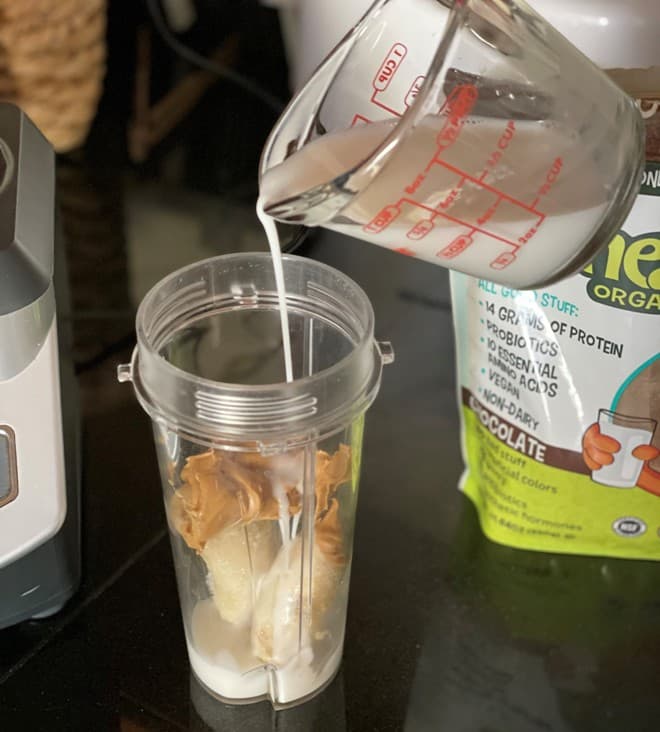
Photo Credit: by Skye Sherman
COVID-19 has sparked all kinds of conversations, from the ethics of travel regulations to proper sanitization and disinfection techniques to mask wearing fashions. We all know that COVID-19 has had a dramatic effect on our lives. Some have even wondered if COVID sadness is the new seasonal depression.
But the pandemic has also launched a new conversation on diabetes, as there is an apparent link between COVID-induced diet changes, a COVID-19 diagnosis, and the effect on those with diabetes (as well as potentially leading to the onset of new cases of diabetes in patients who did not have the condition previously).
The reality is that until the COVID-19 vaccine has been globally distributed and the majority of the earth’s population is vaccinated and protected against the virus, our lifestyles will likely continue to be affected by the dangers associated with this respiratory illness. So it’s important we keep talking about it and read up on the new research as it is studied and released.
In this article, we’ll take a look at sugar consumption, diabetes, COVID-19 lockdowns, and the connection between all of these topics.
The link between COVID-19 and diabetes
While we are all aware that facing COVID-19 has affected our eating habits, for better or for worse, a lesser-known fact is that the uptick in diabetes may not be linked only to diet. In fact, COVID-19 might lead to new-onset diabetes.
An article in the Washington Post reports that some cases of severe COVID-19 led to the development of diabetes in recovered patients: “Researchers don’t understand exactly how the disease might trigger Type 1 or Type 2 diabetes, or whether the cases are temporary or permanent. But 14 percent of those with severe COVID-19 developed a form of the disorder, one analysis found. … scientists do not know whether COVID-19 might hasten already developing problems or actually cause them — or both.”
It’s also important to note that people who already have diabetes are more likely to develop a severe form of COVID-19 infection. They are in a higher-risk category when it comes to the virus, as it has been shown to affect diabetics more severely than the typical healthy individual who does not have the condition.
The article goes on to state that while we know COVID-19 affects the lungs, it’s also linked to other complications, and in fact these links are nothing new. Doctors in Wuhan, China, noticed elevated blood sugar levels in COVID-19 patients as early as January 2020; there has long been an association observed between viral infection and the onset of diabetes.
Still, as the article states, “A year after the pandemic began, the precise nature and scope of the COVID-diabetes link remain a mystery. Many of those who develop diabetes during or after COVID-19 have risk factors, such as obesity or a family history of the disease. … But cases also have occurred in patients with no known risk factors or prior health concerns. And some cases develop months after the body has cleared the virus.”
What can you do to lessen your risk? For one, you should be following a healthy regimen when it comes to diet, exercise, sleep, and other habits that pertain to your physical health. If diabetes and COVID-19 are linked, you should be aware of other factors that are linked to diabetes, such as sugar and carbohydrate intake. Managing diabetes is an everyday reality for those afflicted with the condition, so if there are steps you can take to avoid the condition, it would be wise to do so.
Understanding sugar and its effect on your health
While the general public is beginning to understand just how much sugar can be a danger to your health, it’s important to distinguish between types of sugar. Not all sugar is necessarily bad for you, at least not in moderate amounts.
Sugar falls into two different categories: some sugar occurs naturally in foods like milk, fruit, vegetables, and other whole foods that are vital to a balanced, nutritious diet. However, there’s another type of sugar, sometimes referred to as refined sugar or “free sugars,” which is what most people think of when they think of sugar.
Refined or processed sugar is what comes laden with harm to your health. This type of sugar is artificial and usually added to foods to improve their taste. It’s also loaded into junk foods like candy, ice cream, soda, cakes, cookies, and other bad-for-you bites.
In addition, natural foods with naturally occurring sugar balance out their sugar levels with other beneficial ingredients, like minerals, vitamins, fiber, and other nutrients. However, refined sugar has no nutritional value or benefit to your health; it only causes harm. It may make food taste better (and, in fact, it’s addicting), but it does nothing else for you once it’s done sparking joy in your mouth.
Excessive sugar consumption is sometimes obvious and visible: it can lead to weight gain and even obesity, because extra sugar inside your liver cannot be converted into glycogen, which releases glucose into your bloodstream when broken down, increasing your energy levels. Instead, it’s stored as fat. However, too much sugar in your diet also contributes to invisible illnesses like blood sugar spikes, inflammation, and more, all of which are associated with increasing the risk of certain types of cancer. And, of course, all dentists know that excess sugar is one of the main causes of tooth decay.
But its harm extends even further: excessive sugar consumption is also linked to anxiety, depression, poor sleep, and even reduction in your brain’s cognitive functioning and the development of dementia.
So what can you do about lowering your sugar intake?
How to lower your sugar intake during COVID-19 lockdowns and beyond
It’s easy to turn to comfort food and sugar highs to feel a bit better when the world feels out of control, scary, and limited. Facing a crisis like the COVID-19 pandemic is stressful and draining, and many people have found themselves holing up at home, trying to drown their feelings in food.
But in reality, consuming high amounts of sugar -- especially if you’re a diabetic -- will only make matters worse. It will decrease your health and make you feel poorly in the long run. Instead, use this time of slowness and confusion to give yourself stability by nailing down your healthy eating habits. Become aware of the sugar content of every food you consume. You may still choose to consume it, but you should no longer do so unaware.
Another recommended step is to prepare more light, healthy meals at home, in the comfort of your own kitchen. Not only will this improve your diet, as long as you keep your recipes light and healthy, but it will also likely decrease your sugar intake dramatically by avoiding processed or heavy foods from a package or a restaurant.
“Perhaps the simplest advice that can be given for controlling your intake of free sugars is to prepare meals from scratch where possible, avoiding processed food,” according to general practitioner Dr Zakariya Waqar-Uddin. “Easy swaps are switching fizzy drinks with a high sugar content to those where the label clearly states ‘no added sugar.’ As with many lifestyle alterations, success may lie in gently modifying your diet, initially cutting out sugars where you are less likely to notice the difference, while also allowing yourself treats occasionally.
Oral diabetes medications for diabetes management
When it comes to diabetes management, your diet, exercise, sleep, and overall health regimen are only one part of the picture.
A proper diet and exercise program may sometimes be supplemented by an oral diabetes medication like Januvia, which works by increasing the amount of incretin released by your intestine. Incretin regulates the levels of insulin your body produces after eating. It raises your insulin levels when your blood sugar is high. Controlling your blood sugar level is essential in preventing kidney damage, blindness, nerve problems, loss of limbs, and problems with proper sexual functioning. It’s also vital in helping to reduce your risk of heart attack or stroke.
Another example of a common diabetes medication is Jardiance, which also helps to control a diabetic person’s blood sugar levels. Jardiance is only used to treat type 2 diabetes, not type 1, and should be combined with a proper diet and exercise regimen. The generic name of the medication, empagliflozin, is a chemical that works by helping the kidneys to remove glucose from the bloodstream.
Managing diabetes and preventing infection with COVID-19 is essential to health for those with the condition, as an article in STAT clearly demonstrates. “The numbers are alarming. A Lancet Diabetes & Endocrinology study mining 61 million medical records in the U.K. says 30% of COVID-19 deaths occurred in people with diabetes. After accounting for potentially relevant risk factors such as social deprivation, ethnicity, and other chronic medical conditions, the risk of dying from COVID-19 was still almost three times higher for people with type 1 diabetes and almost twice as high for type 2, versus those without diabetes.”
Personal lifestyle tips: limiting sugar but not happiness
A life without sugar doesn’t have to be a life without happiness! And you don’t have to swear off sugar completely. You just should stick to sugar in moderate amounts, and in the healthiest possible doses.
Get your sugar intake from natural sources like fruit and honey. And when you do eat refined sugar, limit it to a very special occasion, and keep your dose as low as possible. It’s okay to treat yourself, but sugar should be just that: a treat, not a part of your everyday diet. Seek out suitable alternatives to your usual sugary treats and opt for “no sugar added” items when you can help it.
Remember that you can still eat well while avoiding sugar in your everyday diet. Frozen fresh grapes are also a healthy treat for the sweet-toothed and can be an easy snack that is healthy and sweet. Below, find our healthy smoothie recipe, which makes for a perfect breakfast or afternoon pick-me-up snack. It’s completely free of processed sugars and is packed with healthy nutrients, fiber, and protein. It will nourish your body and bring a smile no matter what time of day you drink it -- and plus, it’s so delicious you’ll think it’s dessert.
This-Must-Be-Dessert Smoothie
1 frozen banana
1 tablespoon peanut butter (ensure there’s no added sugar!)
0.5 cup unsweetened almond milk
1 scoop chocolate protein powder (ensure there’s no added sugar!)
Place all ingredients in a blender (in order) and blend until smooth. Adjust proportions of ingredients to make the smoothie as thick or runny as you like; add more banana to make your smoothie thicker, or more almond milk to thin it out so it’s easy to sip through a straw.

Photo Credit: by Skye Sherman
###
Your email address will not be published. Required fields are marked with *.